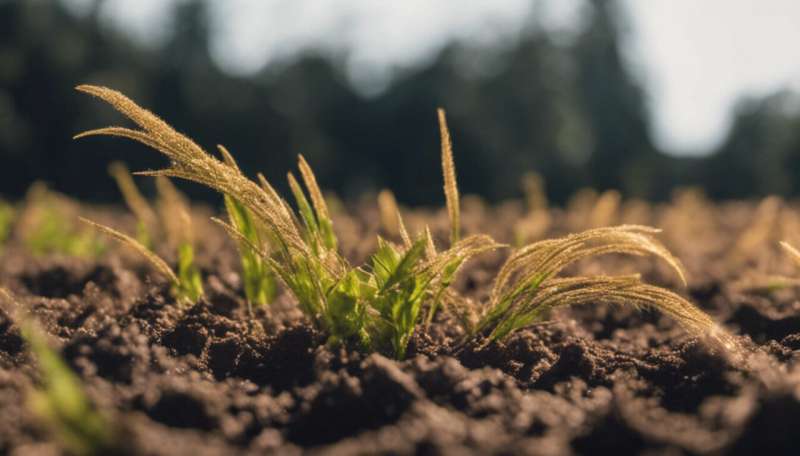In soil we trust

Put simply, we cannot survive without soil. Its rich combination of minerals, carbon-rich organic matter and water supports plant life. It also harbours its own diverse ecosystem of millions of microbes and fauna that aerate the soil, cycle nutrients, decompose dead matter and mineralise rock fragments around them.
And although forests might most readily spring to mind when considering the role of the natural environment in carbon exchange, what may not be so obvious is the vast carbon sink under our very feet. In fact, more carbon is stored in soil worldwide than is found in the atmosphere and the planet’s biomass put together.
Yet this fundamental resource is under threat from intensive agricultural practices and erosion. The catastrophe of the Dust Bowl of the 1930s, when a combination of severe drought and intensive farming caused dust storms across the American prairies, shows the extent to which major damage can be inflicted.
Now, a major programme with €7 million funding from the European Commission will help to define a policy for sustainable management of soils, with a view to adopting a legally binding Soil Framework Directive, such as exists for air and water.
The Ecological Function and Biodiversity Indicators in European Soils (EcoFINDERS) programme, which launched in January 2011, brings together 22 institutional European research partners, including the University of Cambridge, to formulate how best to manage the health of soil.
Soil value
Given the demands made on soil, it can’t look after itself. The goal of EcoFINDERS is to design and implement soil strategies aimed at ensuring the sustainable use of soils, as Dr Unai Pascual, who leads the Cambridge component of the programme, explained: “The general hypothesis is that changes in the diversity of microbes and fauna in soil indicate how healthy it is. EcoFINDERS is therefore characterising soil biodiversity and determining how this links with soil functions and ecosystem services.”
“Our contribution to the programme is focused on working out the value of the soil ecosystem services: essentially, how much does soil matter when you take into account all of the functions it performs?” added Dr. Pascual. “Our task is to design cost-effective and socially fair policy instruments for the conservation of soil biodiversity.”
In effect, soil provides such a vast array of essential ecosystem services that maintaining its health has implications for food production, water availability, climate-induced environmental change, resistance to diseases and pests, and the regulation of its own and above-ground biodiversity.
Dr. Pascual believes that understanding the value of soil biodiversity conservation in relation to its function to deliver key ecosystem services that support human wellbeing will open up a whole new way of looking at soil and land management in Europe and elsewhere, especially in the context of current global challenges such as food security and climate change.
Provided by University of Cambridge













